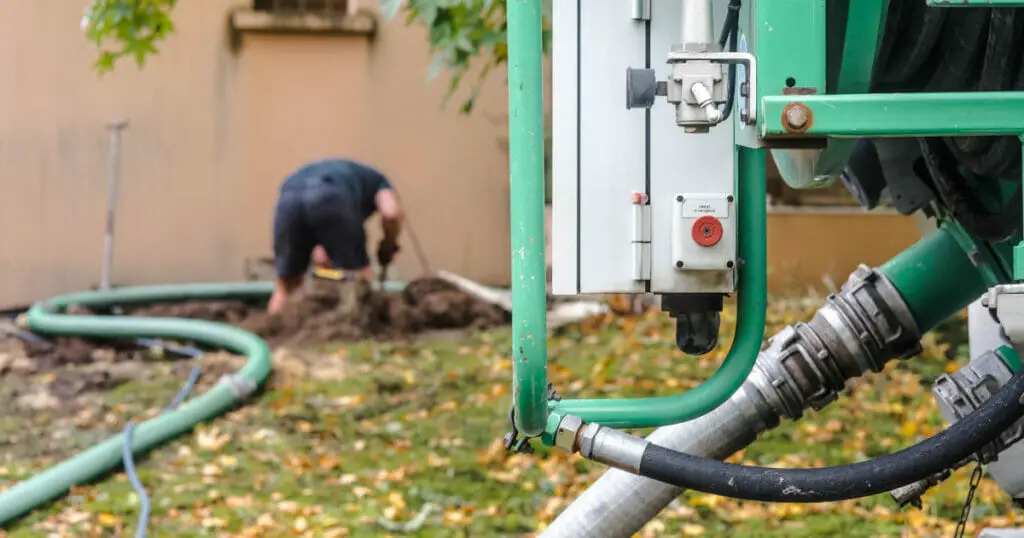If you own an RV, you understand how critical it is to have clean and safe drinking water while traveling. The fresh water tank is a vital component of your RV’s water system. This tank contains the water used for drinking, cooking, and cleaning. Neglecting to clean your RV’s fresh water tank on a regular basis can result in a variety of issues, ranging from unpleasant scents to harmful bacteria and mold growth. In this post, we’ll go over why cleaning your RV’s fresh water tank is so important, how to do it, and some water system maintenance advice.
1. Importance of Cleaning RV Fresh Water Tank
The fresh water tank is a container that stores the water used in the water system of your RV. This tank is often built of plastic and is intended to be long-lasting and durable. It is critical to keep this tank clean in order to preserve the quality of the water you consume.
Cleaning your RV fresh water tank is critical for maintaining water quality and keeping your water system working properly. Failure to clean the tank might result in the formation of hazardous bacteria and mold, which can cause health issues. A dirty tank can also generate bad odors and flavors in your water, making it unpleasant to drink or use. Finally, failing to clean and maintain your RV water system can result in costly future problems.
2. Why Cleaning RV Fresh Water Tank is Important?
A. Prevents Bacteria and Mold Growth
One of the most important reasons to clean your RV fresh water tank on a regular basis is to keep hazardous germs and mildew at bay. These contaminants flourish in warm, damp areas such as your water tank, and if left unchecked, they can create health issues for you and your family.
B. Eliminates Foul Odors and Tastes
A dirty RV fresh water tank can also lead to unpleasant scents and flavors in your water. This is incredibly annoying when you’re attempting to enjoy a nice drink or prepare a meal using clean water.
C. Keeps Water System Running Smoothly
Regularly cleaning your RV’s fresh water tank can also help to keep your water system working smoothly. A dirty tank might clog your water lines or harm your water pump, resulting in pricey repairs later on.
D. Reduces the Cost of Repairs
You can save money on future repairs by cleaning and maintaining your RV’s fresh water tank on a regular basis. A well-kept water system is less likely to develop problems that necessitate costly repairs or replacement.
3. Steps to Clean RV Fresh Water Tank
Step 1: Collect Materials
You’ll need a few supplies to clean your RV’s fresh water tank, including a cleaning solution, a hose, and a bucket. For really tenacious stains, you may want to use a scrub brush or a power washer.
Step 2: Empty the Tank
Begin by totally draining the tank. This can be accomplished by opening the drain valve and allowing the water to drain into a bucket or other container. Make sure to flush out any silt or trash that has gathered in the tank as well.
Step 3: Pour in the cleaning solution
Then, pour your cleaning solution into the tank. You can either use a commercial RV water tank cleaner or create your own solution with bleach and water. For commercial cleaners, follow the manufacturer’s recommendations, or make a DIY solution by combining one cup of bleach with one gallon of water.
Step 4: Fill the Tank and Leave
Fill the tank with new water after adding the cleaning solution, and let it sit for a few hours. This allows the solution to pass through the tank and clear any leftover debris or pollutants.
Step 5: Rinse the Tank and the System
Then, fully flush the tank and your water system with fresh water. This procedure may need to be repeated multiple times to ensure that all traces of the cleaning solution are eliminated.
4. RV Fresh Water Tank Maintenance Tips
Tip No. 1: Make Usage of a Water Filter
A water filter can assist in removing pollutants and sediment from your water before it enters your RV’s fresh water tank. This can help to prevent buildup and keep your tank clean for a longer period of time.
Tip No. 2: Keep the Tank Full
By minimizing the amount of air in the tank, keeping your RV’s fresh water tank filled can assist to avoid bacteria and mold growth. This also helps to keep your water pump in good working order.
Tip No. 3: Use the Right Cleaning Products
Use the proper cleaning chemicals for your RV’s fresh water tank. Avoid using abrasives or harsh chemicals that can harm the tank or your water system.
Tip No. 4: Examine for Leaks Regularly
Checking your water system for leaks on a regular basis can help prevent damage to your RV and verify that your water system is working correctly.
Tip No. 5: Yearly sanitize the tank
It is critical to disinfect your RV’s fresh water tank once a year to keep it in good working order. Using a stronger cleaning solution, such as bleach, involves the same steps as cleaning the tank.
Conclusion
Cleaning your RV’s freshwater tank is an important step in keeping your RV’s water system healthy and functional. Failure to clean your tank can result in the growth of harmful bacteria and mold, bad odors and tastes in your water, and future costly repairs. Regularly cleaning and maintaining your fresh water tank will prevent these issues and keep your RV’s water system functioning smoothly.
Before you begin cleaning your RV’s fresh water tank, make sure you have all of the necessary tools, such as a cleaning solution, a hose, and an auger. Empty the tank thoroughly and flush out any silt or debris that has accumulated. Allow your cleaning solution to settle for a few hours before thoroughly flushing the tank and system with new water.
Use a water filter, maintain the tank at full capacity, use the proper cleaning solutions, check for leaks on a regular basis, and sanitize the tank annually to keep your RV’s fresh water tank in good shape. Here are some guidelines for keeping your RV’s water system healthy and functioning.
Finally, cleaning your RV’s fresh water tank is a crucial step in keeping your water system in good working order and ensuring the safety and quality of your water supply. By frequently cleaning and maintaining your tank, you can avoid potential health issues and costly repairs down the road.



